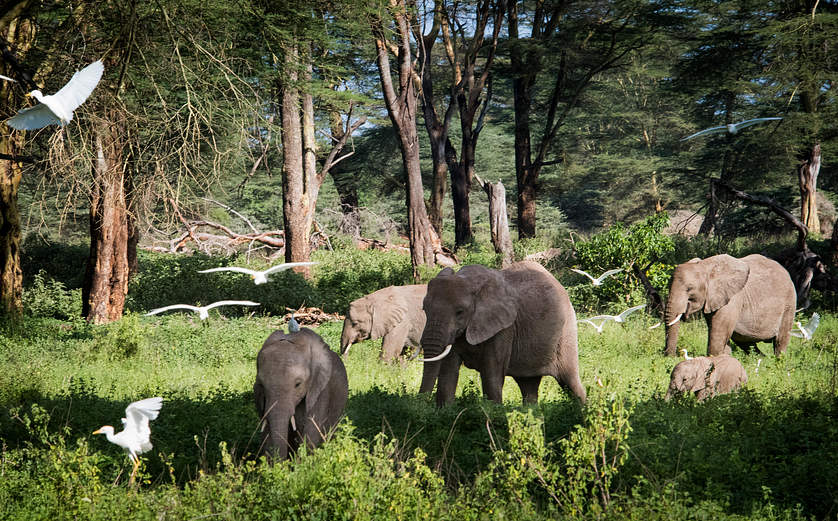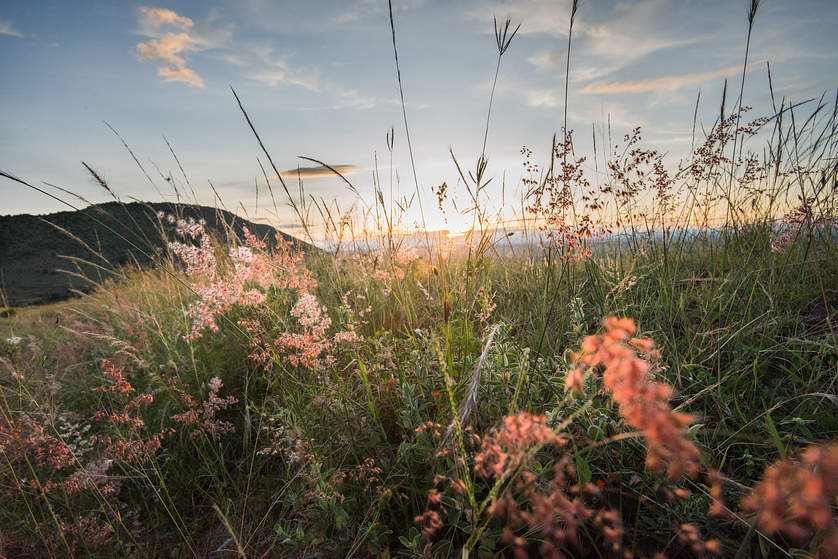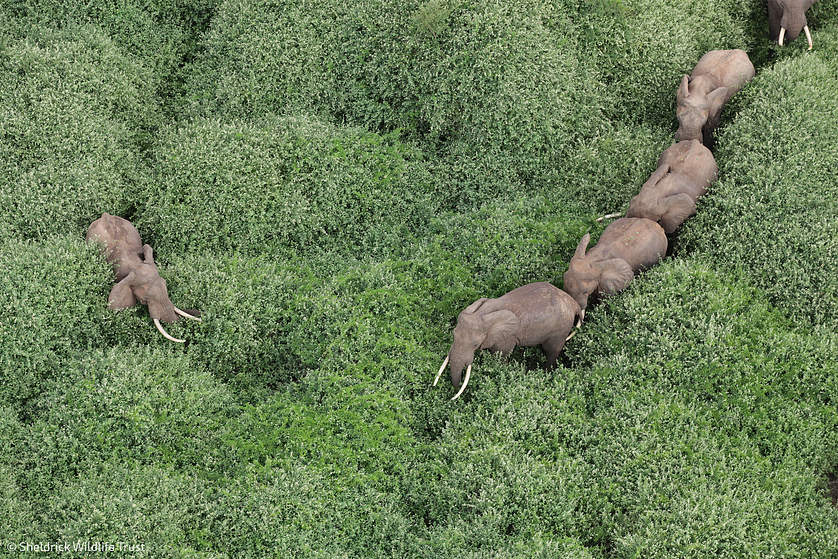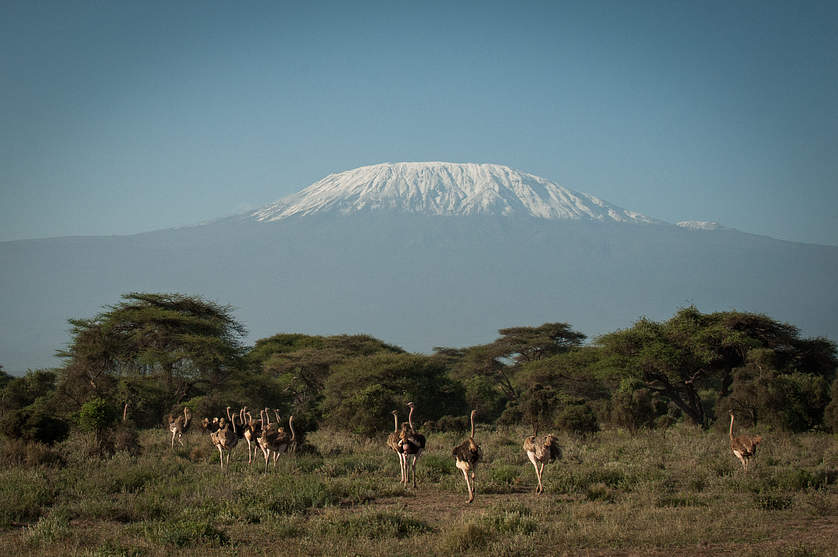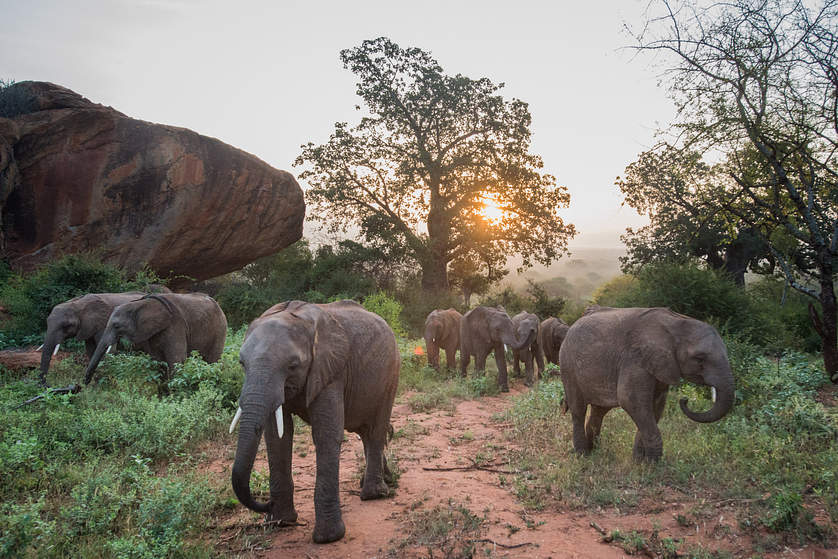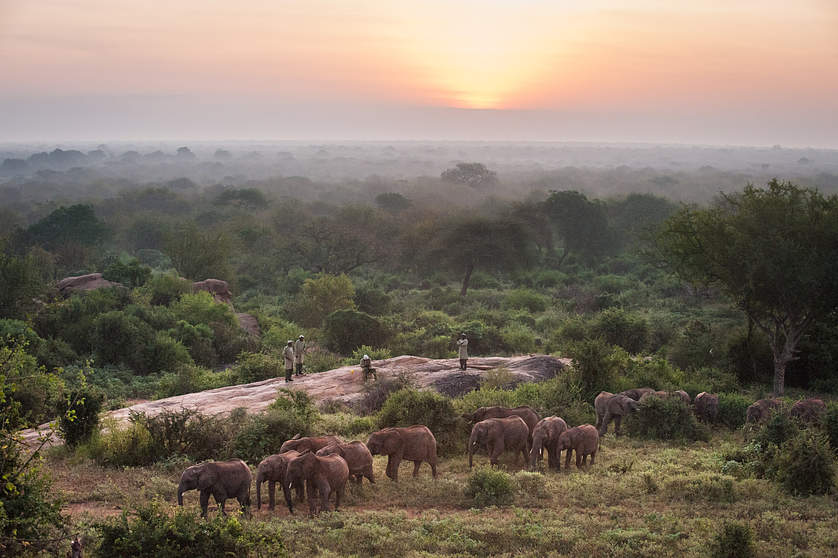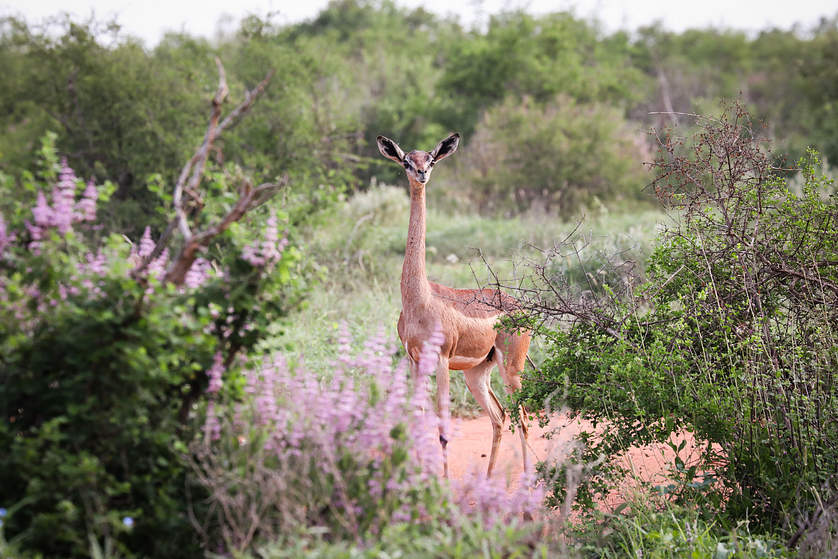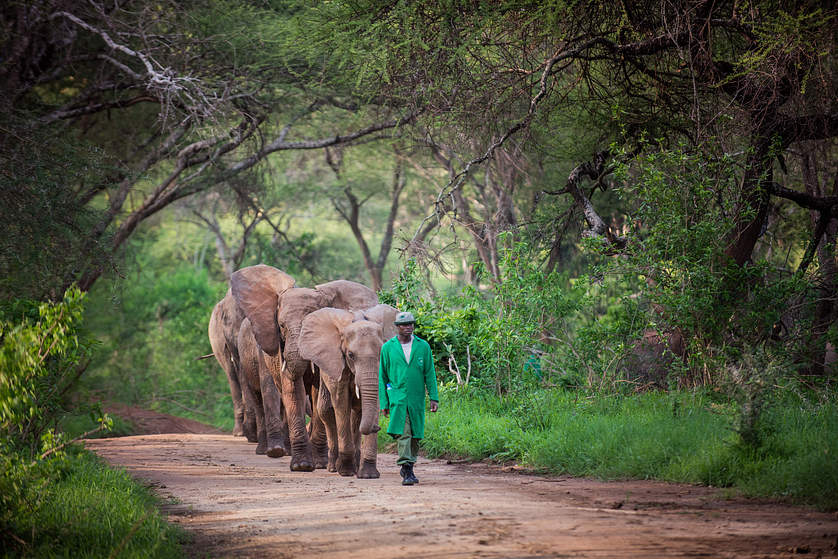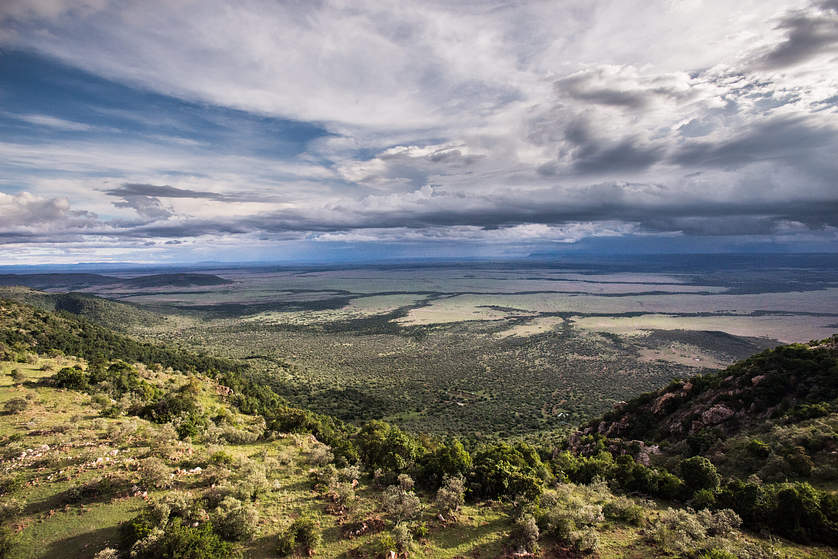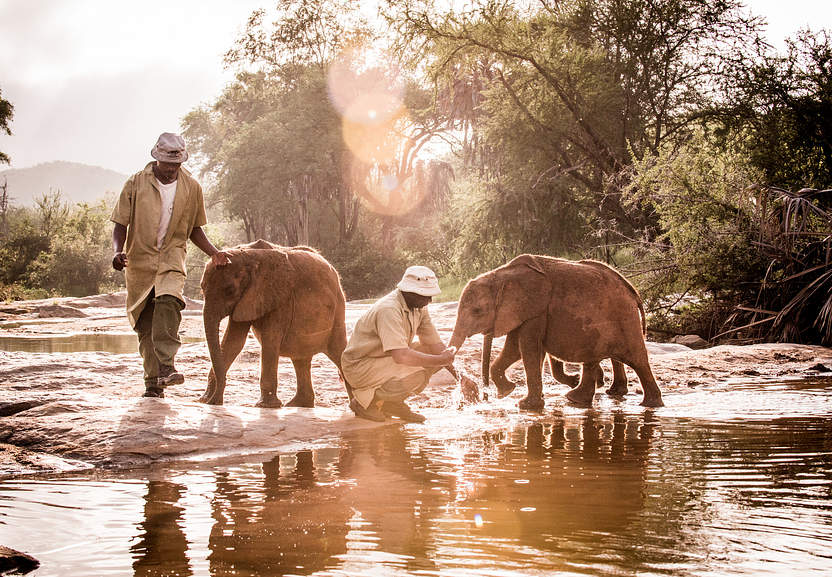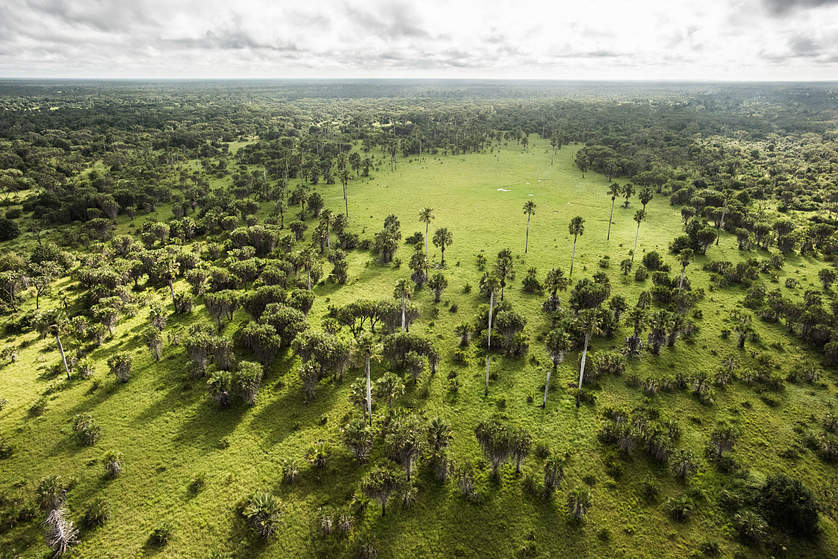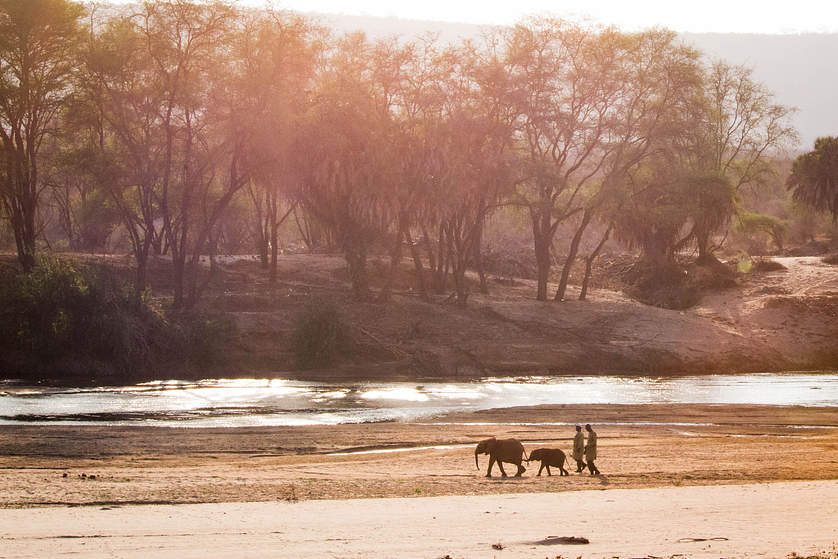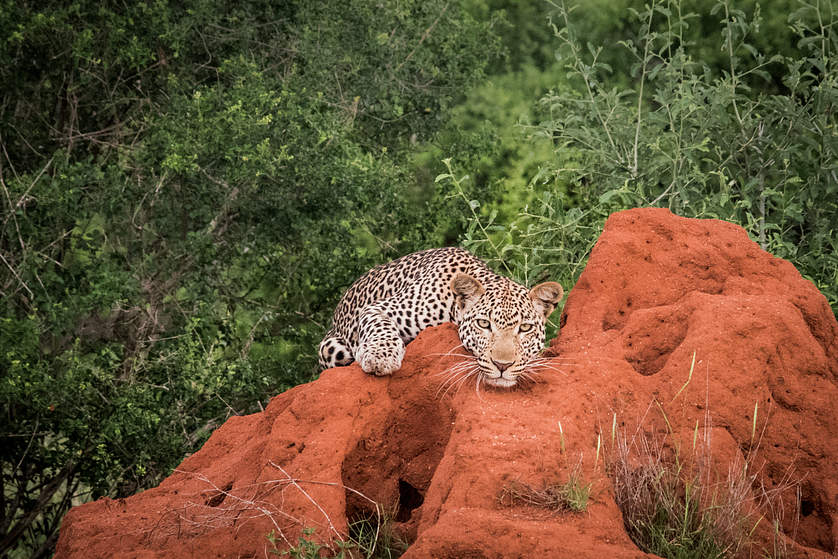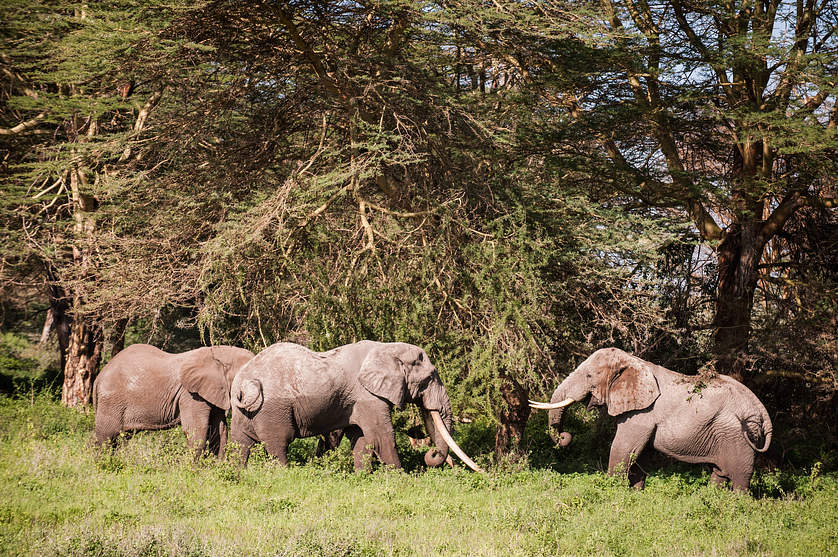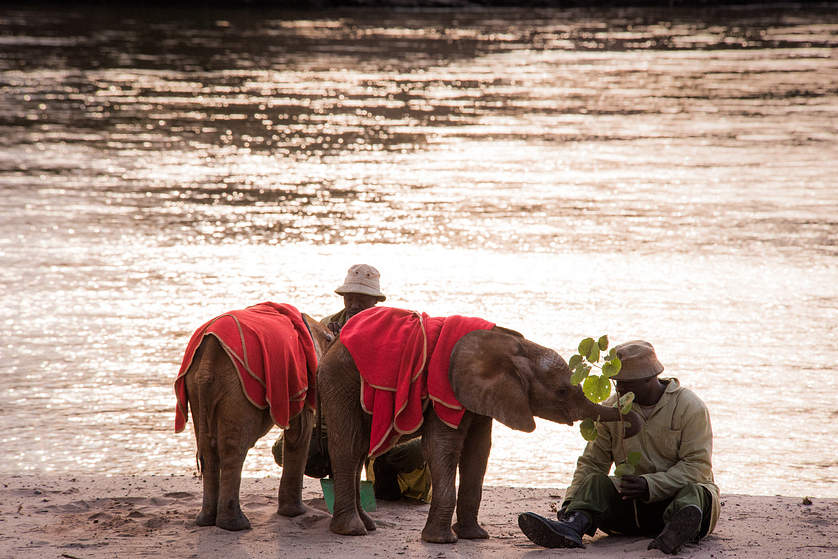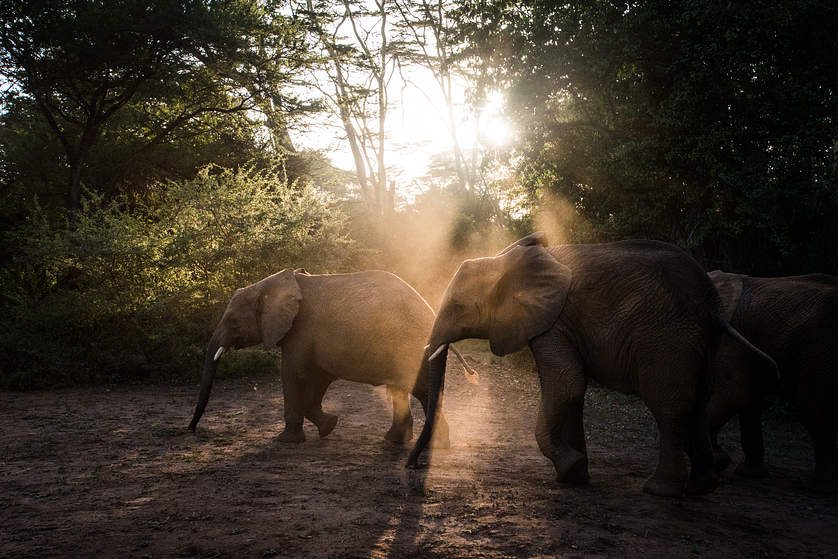
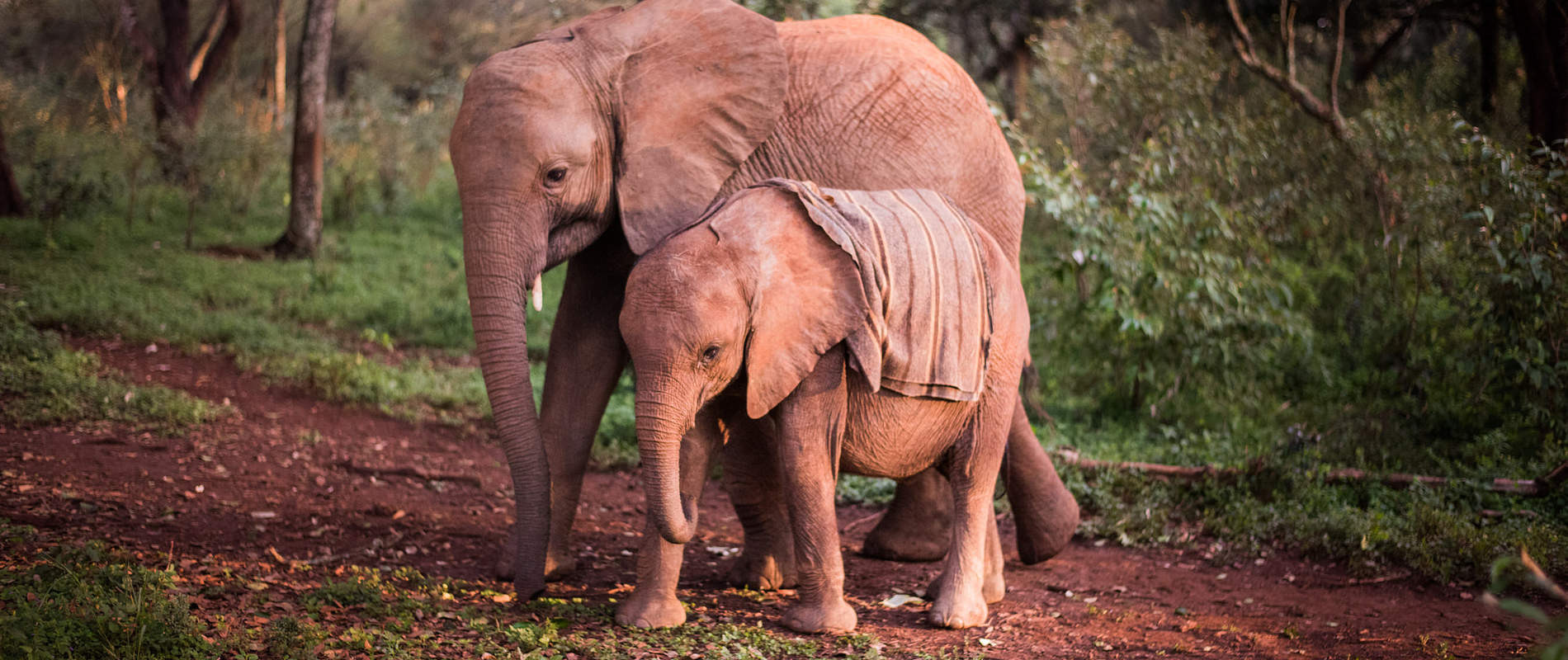
Saving The Wild
Our Saving Habitats Match Appeal goal has been met!
As of 12:00 GMT on 22 June 2021, the incredible generosity of our supporters has resulted in US$500,000 being raised for the protection of habitats in Kenya. We are humbled by your kindness and committed support to our efforts, and are so grateful to everyone who has donated. Now that the matched fund has been exhausted, please be aware that any further donations will not be matched, however, any and all donations to our Saving Habitats project remain most welcomed and needed.
Elephants are a species whose lifespan mirrors our own: With health and luck on their side, an elephant can walk the earth for upwards of 70 years. Just as we think about the world we want to create for our children, we must also think about a long-term viable future for elephants.
Having raised hundreds of orphaned elephants over the years, many now forging wild lives, saving habitats and securing a future for Africa’s giants is very much at the forefront of our mission. And that is where our Saving Habitats Project comes in. In the last decade, we have embarked on ambitious plans to secure and manage key wildernesses across Kenya. Many of these critical habitats border existing National Parks and protected lands, thereby securing and creating vital buffer zones and wildlife corridors that link up ecosystems and Conservation Areas across Kenya. Others are in threatened areas that would otherwise be lost forever. While Saving Habitats is a long-term endeavour, its effect is immediate.
With your help, we have the opportunity to increase our conservation footprint: The generous matching fund of $250,000 has been offered to the Trust in support of our Saving Habitats initiatives, so that we can protect a greater space for wildlife, now and into the future. Any donation you choose to make through this campaign will be doubled, significantly enhancing the impact of your gift at a field level.
Level of matching fund released so far: Every donation takes us closer to securing the full $250,000 available
Rescuing orphaned elephants is only the start of a long-term investment we make in these animals and their lives. The time they spend in our care, while formative, is but a brief chapter in a life that spans well over half a century. As we nurture today’s orphans, and so many others like them through their vulnerable, milk-dependent years, we are always looking ahead. One day, they will be nurturing their own families, and we must ensure they have the safe space they need for generations to come. Already, 38 calves have been born to orphans we rescued, raised and reintegrated back into the wild, and our baby boom is growing exponentially.
And that is where our Saving Habitats Project comes in. In the last decade, we have embarked on ambitious plans to secure and manage key wildernesses across Kenya. Many of these critical habitats border existing National Parks and protected lands, including Tsavo East and West National Parks – the future home of many of the orphans in our care. Thereby securing and creating vital buffer zones and wildlife corridors that link up ecosystems and Conservation Areas across Kenya. Others are in threatened areas that would otherwise be lost forever. While Saving Habitats is a long-term endeavour, its effect is immediate.
We have already accomplished a great deal, but still there remain important opportunities to grasp — some of which were brought about by the challenges of the past year. So far in 2021, we have been afforded a rare opportunity to secure an additional 120,000 acres of wilderness. We will be uniquely positioned to fortify these areas — much like we have the ones below — and further protect and secure a vast wilderness.

The SWT is helping to protect, preserve and conserve eight key areas in Kenya (shown on map)
Once we become the stewards of an area, we must implement the infrastructure to ensure it remains a viable habitat. We invest a great deal of time and resources to ensure our approach solves the real challenges facing each unique place, be it securing borders through electric fencelines, implementing daily anti-poaching patrols, rehabilitating degraded landscapes, and more. These conservation measures also serve local communities, providing employment, protecting their livelihoods from marauding elephants, and reducing potentially lethal instances of human-wildlife conflict. When habitats are secured, everyone benefits.
With your support, and through this most generous matched giving fund, we can further invest in our Saving Habitats footprint to help ensure that Kenya’s wildlife survives our rapidly changing world.
267+ KMs
Fencelines erected and maintained
500,000+
Trees planted in 2020
330,000
Acres under direct SWT protection
50,977
KMs patrolled on foot in 2020
8
Key conservation areas protected by SWT
18
Fully Mobile De-Snaring Teams
Kimana
In the Amboseli ecosystem we work with our partner Big Life and local Maasai land owners to protect the Kimana Sanctuary and Corridor. Areas of significant importance to wildlife, including some of Kenya's last remaining Tuskers. We fund land leases to ensure this critical space remains a viable migratory route for elephants, in turn supporting local livelihoods, reducing poaching, minimising the impact of livestock and mitigating human-wildlife conflict.
Kibwezi
Severe deforestation and damage due to decades of bushmeat poaching, charcoal burning, illegal logging and livestock incursions, had taken a devastating toll on this vital groundwater forest. Through a permanent management presence, erection and patrolling of electric fencelines, deployment of anti-poaching teams, reforestation initiatives and creation of local employment, we have helped the forest to regenerate. Protecting this vital water catchment for humans and wildlife, and providing a home for vulnerable orphaned elephants rescued by the SWT.
Amu
Deforestation, habitat degredation, human encroachment and bushmeat poaching threatened this vulnerable ecosystem. Working with the local Lamu Conservation Trust, we undertake community engagement, ambitious reforestation initiatives and support an ongoing anti-poaching presence. Since our involvement, we have significantly reduced illegal activity, created local employment and planted over 2+ million mangroves with local partners.
Rules of the matched giving campaign - when, where and which donations are eligible.
Start date and time: 00.01am GMT on Monday 14th June 2021.
End date and time: When the US$250,000 matching fund is exhausted.
When the matching fund is exhausted this will be immediately announced on this page and the Sheldrick Trust Facebook, Instagram and Twitter accounts.
Matching conditions: Between the start and end date of the matched Saving Habitats campaign, all online donations made on this dedicated campaign page (Saving Habitats Match Appeal) will be matched up to a total of $250,000
Donations that will not be matched: Donations made before 00.01am GMT on Monday 14th June 2021 will not be matched. Donations made after the matched funding runs out will not be matched. Direct Debits made via the Sheldrick Wildlife Trust (UK) will not be eligible for the match. Purchases from the SWT or SWT USA merchandise shops will NOT be matched, as these are not classified as donations for auditing purposes. Donations to the Sheldrick Wildlife Trust or Sheldrick Wildlife Trust USA via third party sources, including (but not limited to) Just Giving, Facebook, Instagram, Virgin Money Giving, Crowdrise, will not be matched.

